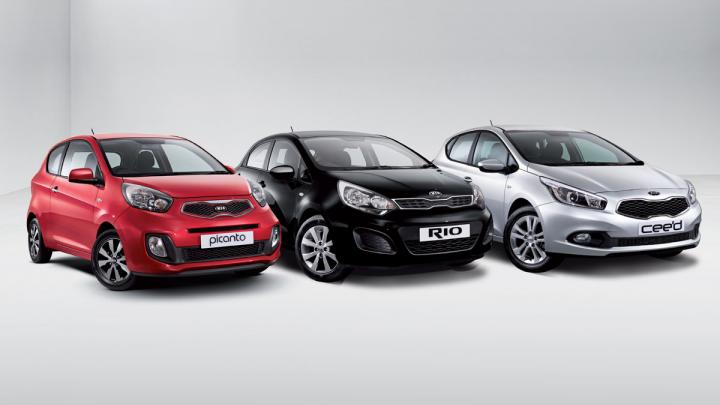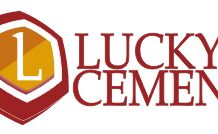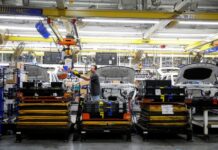“You could have a Kia Classic, which was just a little below Honda City in terms of performance, in the price of a Daihatsu Coure. That was something great,” said Shakaeb Khan, an automobile enthusiast, who also runs SK Motors Syndicate. A car repairing service company, SK Motors Syndicate which was nominated for Shell Tameer award for startups in 2012.
“My family bought it in 2005 and kept it for five years. It didn’t need any major maintenance. It was a good car,” said Khan.
“Hyundai’s one-ton truck Shehzore had been a successful, trouble-free commercial vehicle. Also marketed by the Dewans in this country, it was then priced around Rs600,000. Those old, reconditioned models are now available for around Rs700,000 to Rs800,000.”
Citing Mitsubishi Lancer as a case in point, he said, it was a massive hit in the global market but somehow didn’t do all that well over here. Rolled out by the Dewans in this country, “the old Lancers are still selling above what was its brand-new price.”
Before the Dewan Mushtaq Group signed technical license agreements with Kia Motors Corporation in December 1998, Naya Daur Motors was the first to introduce Kia in Pakistan in 1994. According to court filings, the company took over around Rs800 million as booking fees from around 16,000 people. Less than a thousand vehicles were delivered before the company went bankrupt.
After signing a separate deal with Hyundai Motor Company and KIA Motors Corporation in December 1998, Dewan Mushtaq Group started production in the year 2000. However, Kia Motors stopped its assembly line in Pakistan after just seven years, in 2007.
Conglomerate’s fall takes down Kia
Kia, Hyundai or Mitsubishi were not bad or even expensive vehicles. Far from it. The trio was unlucky to have been associated with the Dewans falling empire.
A source close to the Group, who prefers to remain unnamed, confirmed that Kia’s production in Pakistan was halted owing to the Dewans management failure and not because there was anything inherently wrong with Kia.

“The Dewans had bit more than they could chew by having Kia, Mitsubishi, Hyundai and the BMW under their standard. Devoid of the business and managerial nous, the quartet was always going to prove too much of a challenge for the Dewans. Lacking financial discipline, the Dewans did not take banks fully on board and kept on moving money from one line of business to another without a care in the world. The bankruptcy when it came was quite predictable,” the source said.
Earlier, the Tawakkal group had brought Kia over under its enterprise ‘Naya Daur’. “The group neither had any credibility nor the intent to stay in the business for long enough. This all was meant to dupe people. Those who made the initial payment of around Rs50,000 per vehicle never saw their money back.”
A trendsetter in many businesses over the years, dubbing a group like the Dewan, as incompetent would to some extent be injustice.

At least on the record, Dewan Yousuf, the brain behind the establishment of Dewan Farooque Motors Company Limited (DFML), was a visionary businessman. The company was formally launched in December 1998.
Yousuf had a conviction that auto industry has a big role to play in any country’s real economic growth. Previously, in an interview to Express Tribune, Yousuf was quoted as saying, “In Europe, it’s like every other person is associated with the auto industry.” He also takes credit of reviving it in Pakistan in the mid nineties.
DFML was the first automobile company in this country to have robotic paint machines after it sealed its partnership with KIA and Hyundai to assemble vehicles. Car leasing was also introduced by DFML through Askari Leasing – allowing many with enough cash to pay a vehicle up front to possess one.

DFML had the capacity to assemble 10,000 vehicles at its plant annually. According to a newspaper report, it produced 95,429 automobiles – including Kia Classic, Kia Spectra, Sportage – between 2000 and 2011. The DFML also sold 50,000 Shehzore trucks. Combined sales of all of DFML car sales revenue grew to Rs10.6 billion from Rs 3.3 billion in 2001, posting a cumulative net profit of Rs840 million over a period of six years.
It appears that not much was wrong with DFML but there definitely were issues with the larger conglomerate, as the Dewan Mushtaq Group was in polyester, cotton yarn, sugar, cement and petroleum businesses.
DFML is still functional and selling BMW cars in Pakistan and intermittently comes in the news, coming with one or another plan to once again steer into auto industry.
“There was a time when the people would generally only go for Toyota, Suzuki or Honda cars. But by 2005 and 2006, with the import of used cars, people started to realize that other brands were also as good. But by then, the time was up for Dewans, I guess,” Shakaeb Khan said.
Lucky-Kia partnership, good for both
Omer Arshad, who runs a car review channel on Youtube, mostly concurred with Khan’s views that the cars the Dewans were dealing in didn’t have any problems.
“Before Dewan halted its operations, Kia’s Sportage was selling at Rs200,000 ‘on’. The official rate of the car was Rs1,550,000 and people were ready to dish out Rs1,750,000 – meaning there was much demand for the car. But Dewans failed to keep it going because of its mismanagement,” Arshad said.

‘On’ money is considered ‘unethical’ profit earned by investors who book the car at price-tag rate only to resell at a premium to those keen to skip the waiting period for delivery.
Two more Kias, Spectra and Classic, did not strike it big in the Pakistani market. The latter was with a trunk, with a price similar to hatchback Suzuki Cultus but its boxy shape was visually not good-looking enough for people, added Arshad. The former, Spectra, was 1,500 CC, its fuel inefficiency making it unattractive. “They should with have replaced have replaced it with other cars or changed shape. The insight and timely action seemed to be lacking,” he said.
Now Lucky Cement has partnered with KIA Motors and would be marketing KIA vehicles, accessories and parts in Pakistan.
Familiar with the development of Lucky Cement gunning to bring Kia under its banner in its first foray in the auto industry, an official informed that the Korean company has been relentlessly improving and has jumped in international standings to 8th spot from 11th, moving one step up on the ladder every year. “This means Kia is nudging ahead of one competitor every year.”
In its Initial Quality Survey, Kia has been rated as number one brand for two consecutive years by JD Power Marketing Research Company in 2015 and 2016.
Partnering with a group as sturdy and credible as Lucky – solid reputation, financial muscle, good equity and superb track record – would be good for Kia.
Kia is a famous car in the Middle East, also in the USA and other regions. Approximately 70% cars in Iraq are of Kia brand. People having visited abroad understand that Kia is an internationally accepted brand.
Since Kia has been making good cars, it would be viable for the local company to extend warranty better than the competitors. Dispelling the impression that Kia would be synonymous with cheap, a source inside Lucky-Kia said: the package would be good cars at affordable price.
Spoiled for choice
Meanwhile, the source added that the entry of Kia-Lucky, Nishat-Hyundai and Al-Futaim-Renault in the auto industry in Pakistan will benefit the consumers most as they will have various options compared to now.

Kia-Lucky will initially be a subsidiary of Lucky Cement but the group has planned to list it separately in the near future after ascertaining its viability. According to a financial analyst of Insight Securities, Zeeshan Afzal, Lucky is a strong group and funds are available for it to venture into new businesses.
“But the success of an automobile is not necessarily dependant on the host company. Lucky is only an investor. It will depend on how market receives Kia. Apparently I see no reason for Kia to flop because it is an acceptable brand in India, with the market having similar characteristics across the border. For instance, income level and family size, that influence a person’s decision to buy a certain vehicle are roughly the same in India and Pakistan,” he said.
The government of Pakistan, he added, is facilitating new entrants by offering lower import duties as compared to established players.
“The cost of production is higher for companies venturing into new markets – for on top of production, they have to market more aggressively to carve a niche for themselves. Meanwhile, the former players have completed their depreciation age since they have been here for over 30 years.”
Monopolies, a thing of the past
With the entry of new players, the monopoly of the previous players would be broken but they wouldn’t be going anywhere.
“I haven’t seen new players ousting former players from the auto industry anywhere. So, the Japanese market leaders would not be going anywhere. But since the competition would raise the benchmark, they would have to offer better packages to consumers, who would demand better deals. Either the consumers would get those or they would have the option of switching to the other brand that does,” he added.

Afzal further said that the auto-industry would benefit with the entry of new players, as would the local spare parts’ industry for it would have the opportunity to produce more and achieve economies of scale. Previously, it had not been viable to produce spare parts because the market had not been big enough.
Moreover, the new players’ entry will have to hire labour from Pakistan for their assembly plants – a good thing for the industry and the country.







What a price new kia cars and engine power fuel consumption.
I used to like the design of KIA Spectra – however unfortunately it closed down otherwise it was giving tough competition to Honda and Toyota. KIA Sportage was also really good. KIA entry will definitely bring the much needed competition in local market.
With the infrastructure development in Pakistan particularly completion of ongoing Motorways/ Highways, and increase in purchasing power of certain class of society, trend to have two or more cars with each family, a trend prevalent in western countries, future of motor vehicles seem very bright in Pakistan giving room to various Korean, European companies to enter in competition with the Japanese giants.
m.aslam ch
Comments are closed.